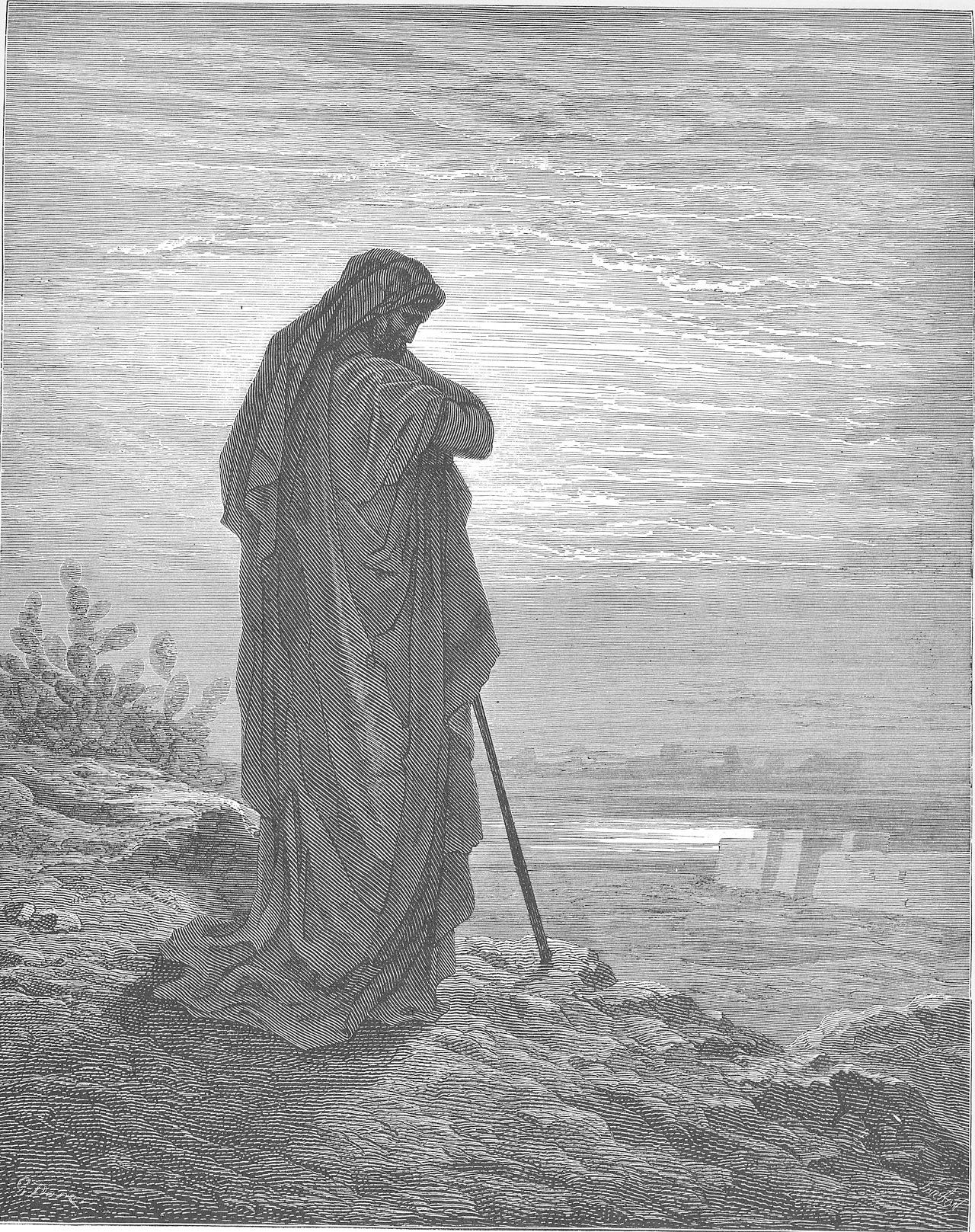Seek me and live
Amos 5:4-6 - It is up to each of us to turn away from these idols, to seek Him and live.
“This is what the Lord says to Israel: “Seek me and live; do not seek Bethel, do not go to Gilgal, do not journey to Beersheba. For Gilgal will surely go into exile, and Bethel will be reduced to nothing.” Seek the Lord and live, or he will sweep through the tribes of Joseph like a fire; it will devour them, and Bethel will have no one to quench it.”
Amos 5:4-6 NIV
God really hit me with some out-of-the-blue verses today, heading to the minor prophet Amos. This is the first time in well over 900 Heaven On Wheels devotionals that God has directed either Barb or me to the Book of Amos in the Old Testament, so it’s time to learn a little bit about this prophet.
Amos was around at the same time as the other minor prophet Hosea as well as the very well-known prophet Isaiah. He wrote his book of prophecies between 760 and 755 BC, and hailed from the southern kingdom of Judah while preaching in the northern kingdom of Israel (Samaria). In his short book, Amos mainly spoke about the disparity between the wealthy minority and the poor majority, preaching on themes of justice, God’s omnipotence, and divine judgment.
His name, like the names of many of the other prophets, has meaning. In ancient Hebrew, Amos means “burdensome”. As a shepherd by trade, Amos was bearing the dual burdens of poverty and obscurity. A faithful man, he listened to the Lord and tried his best to pass God’s Word along to the population of Israel.
The Prophet Amos from Gustav Doré’s English Bible (1866), Public Domain
Scottish Baptist minister Alexander MacLaren (1826-1910) said this of Amos and the times in which he lived:
The reign of Jeroboam II, in which Amos prophesied, was a period of great prosperity and of great corruption. Amos, born in the Southern Kingdom, and accustomed to the simple life of a shepherd, blazed up in indignation at the signs of misused wealth and selfish luxury that he saw everywhere, in what was to him almost a foreign country. If one fancies a godly Scottish Highlander sent to the West end of London, or a Bible-reading New England farmer's man sent to New York's 'upper ten,' one will have some notion of this prophet, the impressions made, and the task laid on him. He has a message to our state of society which, in many particulars, resembles that which he had to rebuke.
In the NIV translation of the Bible, Chapter 5 of Amos is titled “A Lament and Call to Repentance”. Amos begins his message in verse 4 by passing along God’s message — “seek me and live.” Those are timely and easily understood words, but what follows can be very confusing to modern readers — a lot of seeming nonsense about Bethel, Gilgal, and Beersheba.
MacLaren goes on to explain:
But Amos further teaches us that such seeking is not real nor able to find, unless it is accompanied with turning away from all sinful quests after vanities. We must give up seeking Bethel, Gilgal, or Beersheba, seats of the calf worship, if we are to seek God to purpose. The sin of the Northern Kingdom was that it wanted to worship Jehovah under the symbol of the calves, thus trying to unite two discrepant things. And is not a great deal of our Christianity of much the same quality? Too many of us are doing just what Elijah told the crowds on Carmel that they were doing, trying to 'shuffle along on both knees.' We would seek God, but we would like to have an occasional visit to Bethel. It cannot be done. There must be detachment, if there is to be any real attachment. And the certain transiency of all creatural objects is a good reason for not fastening ourselves to them, lest we should share their fate. 'Gilgal shall go into captivity, and Bethel shall come to nought,' therefore let us join ourselves to the Eternal Love and we shall abide, as it abides, for ever.
The exhortation is next enforced by presenting the consequences of neglecting it. To seek Him is life, not to seek Him incurs the danger of finding Him in unwelcome ways. That is for ever true. We do not get away from God by forgetting Him, but we run the risk of finding in Him, not the fire which vitalises, purifies, melts, and gladdens, but that which consumes. The fire is one, but its effects are twofold. God is for us either that fire into which it is blessedness to be baptized, or that by which it is death to be burned up. And what can Bethel, or calves, or all the world do to quench it or pluck us out of it?
Thanks to our wise Scotsman, these verses from Amos now make perfect sense; we need to seek Him and turn away from idols in order to avoid “death to be burned up.” Even in our time, there are many Golden Calves that people worship — money, fame, power, and celebrity to name just a few. It is up to each of us to turn away from these idols, to seek Him, and live in His eternal love.
Heaven On Wheels Daily Prayer:
Lord, too often in our lives we chase after what is not important rather than seeking Your with all of our hearts, souls, minds, and strength. Bring to each of us through our prayers the focus needed to discard the idols in our lives and to be dependent totally on You. I pray this in the name of Your Son and my Savior, Jesus. AMEN.




